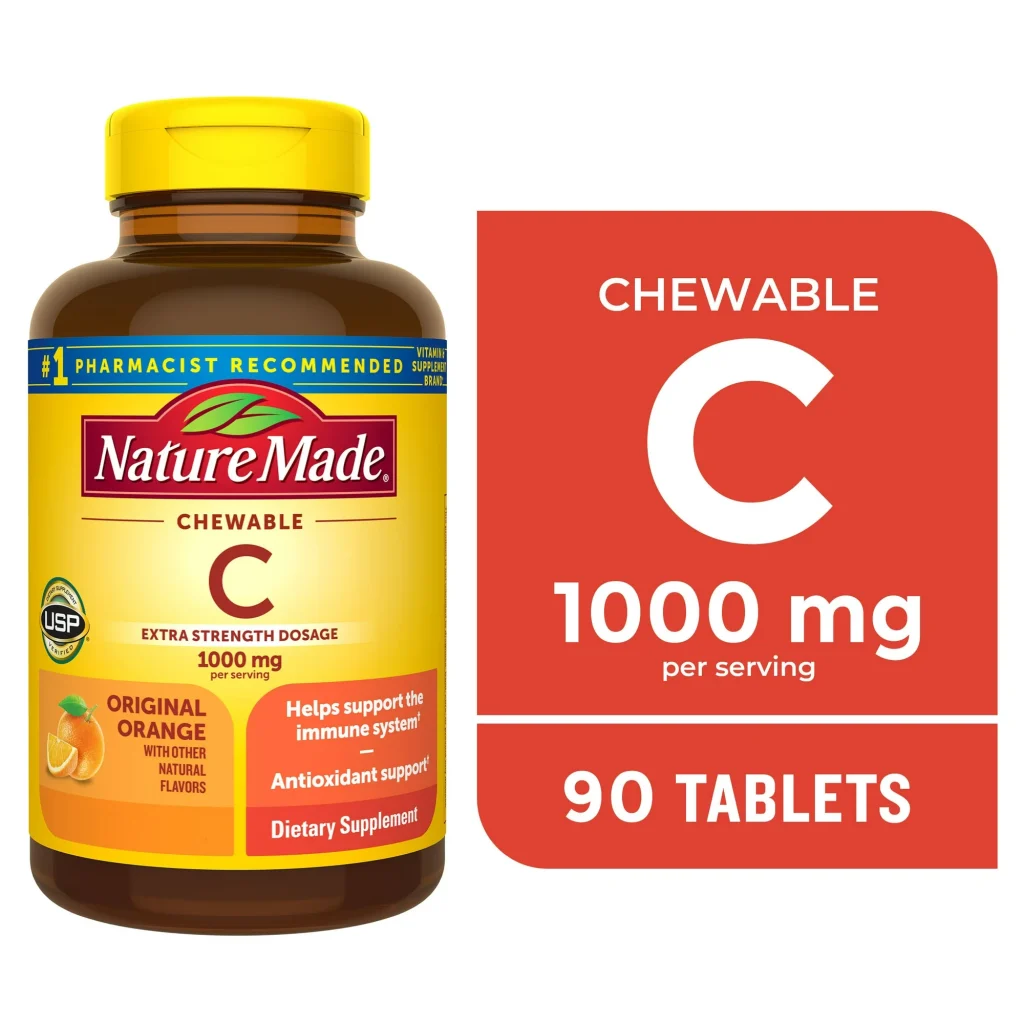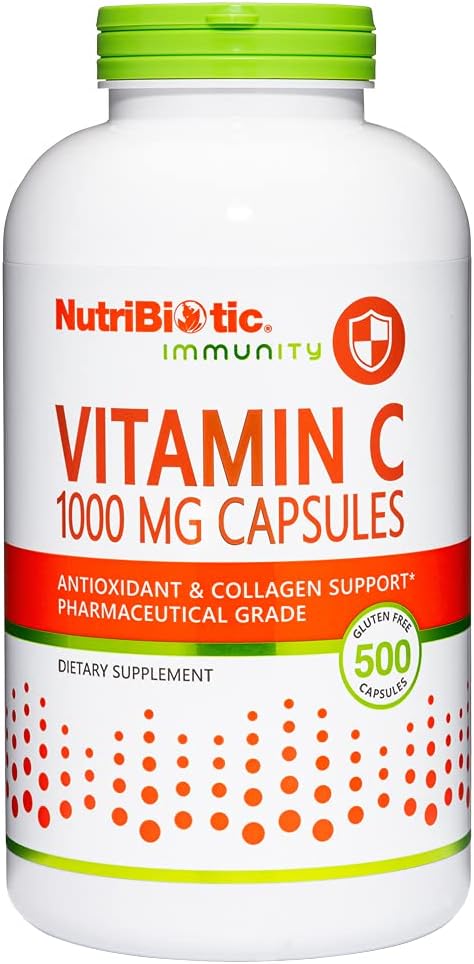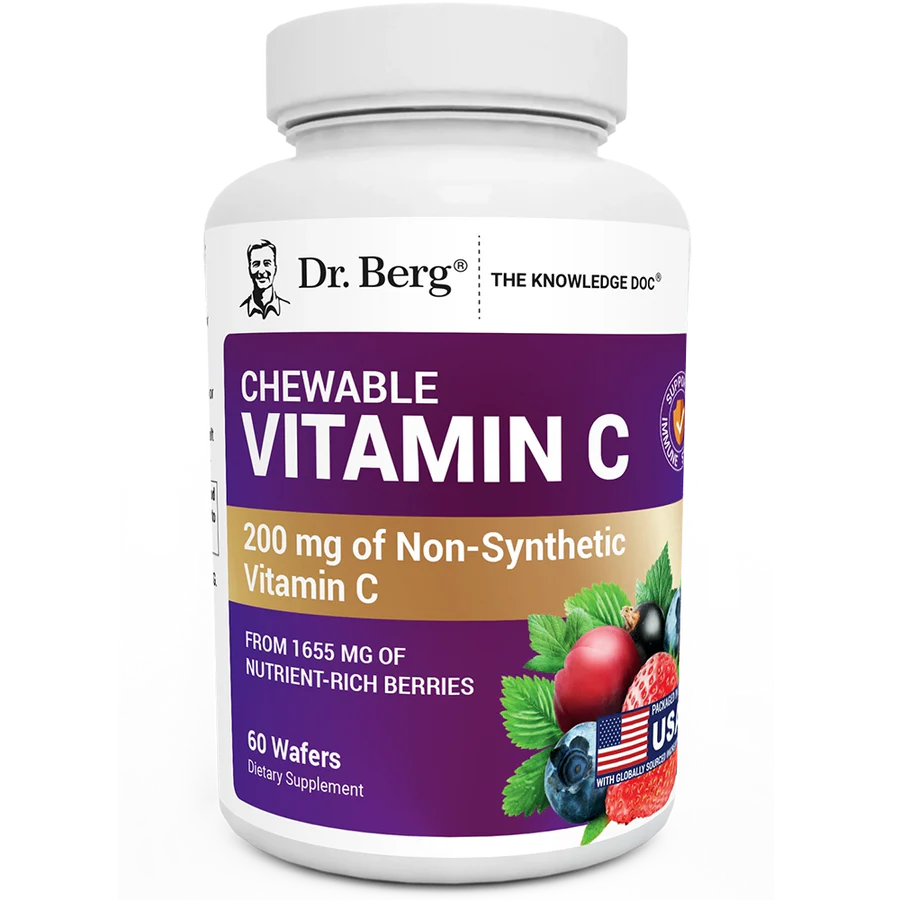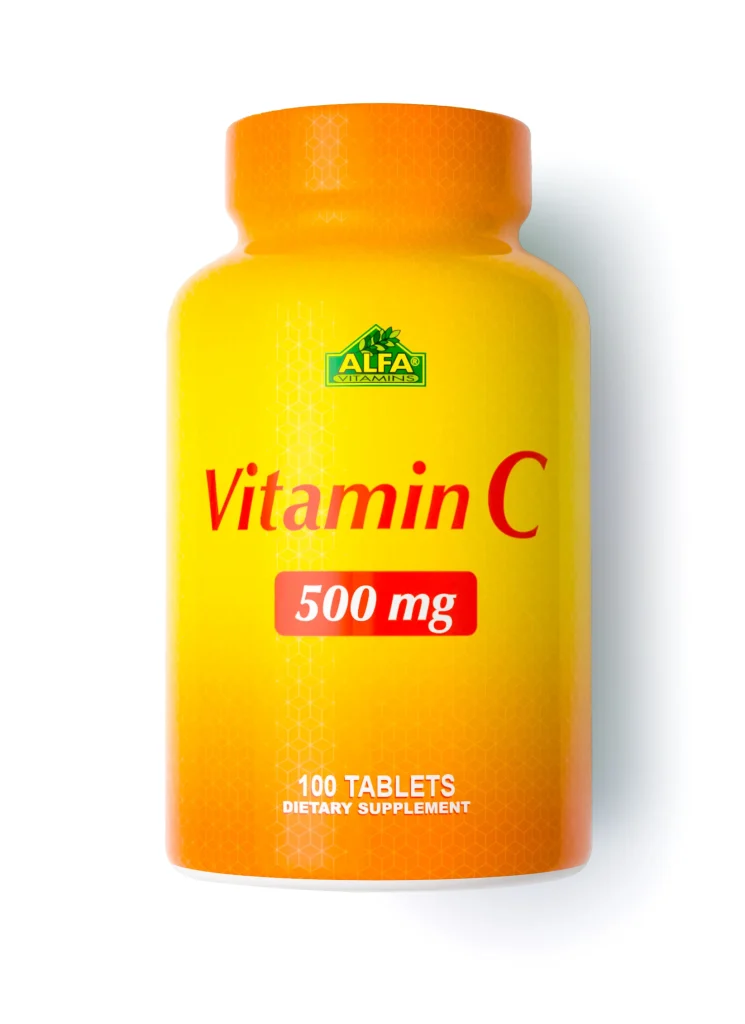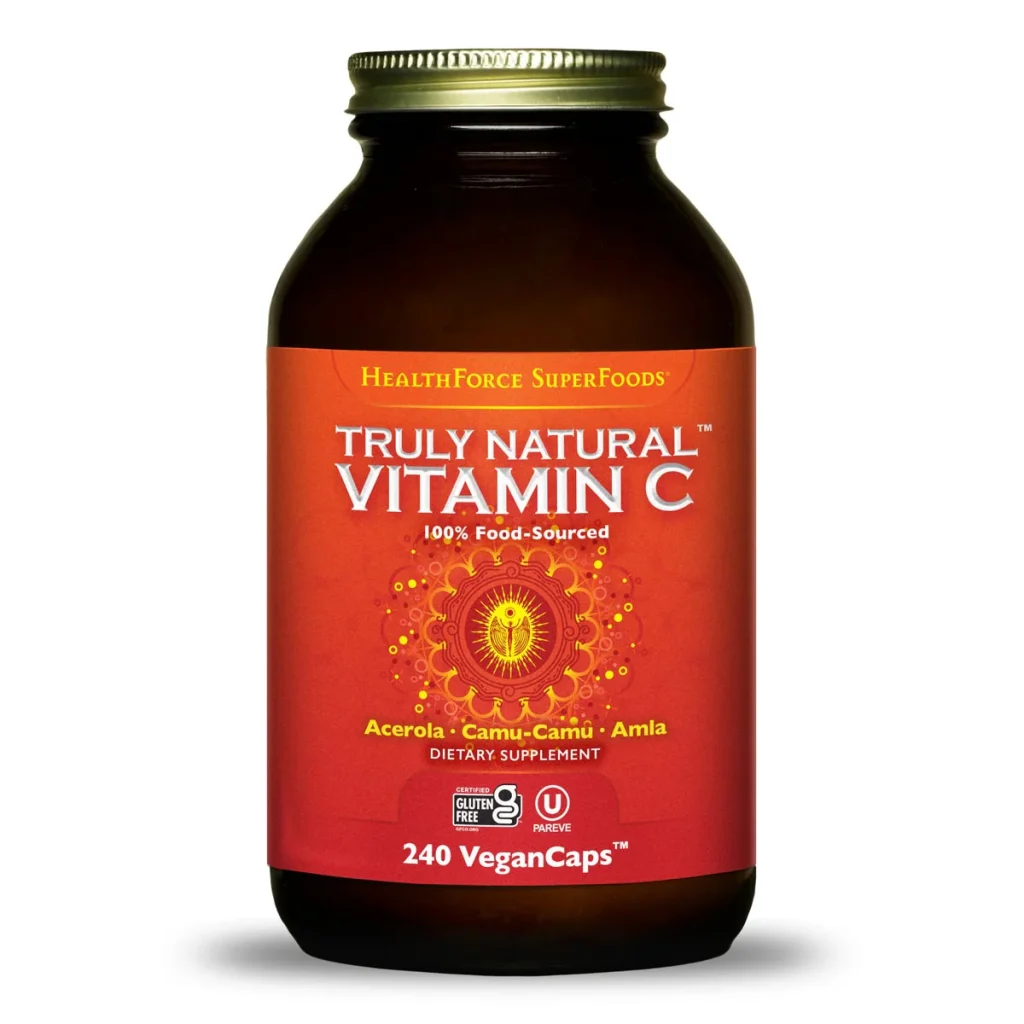What’s Vitamin C(Ascorbic Acid) ?
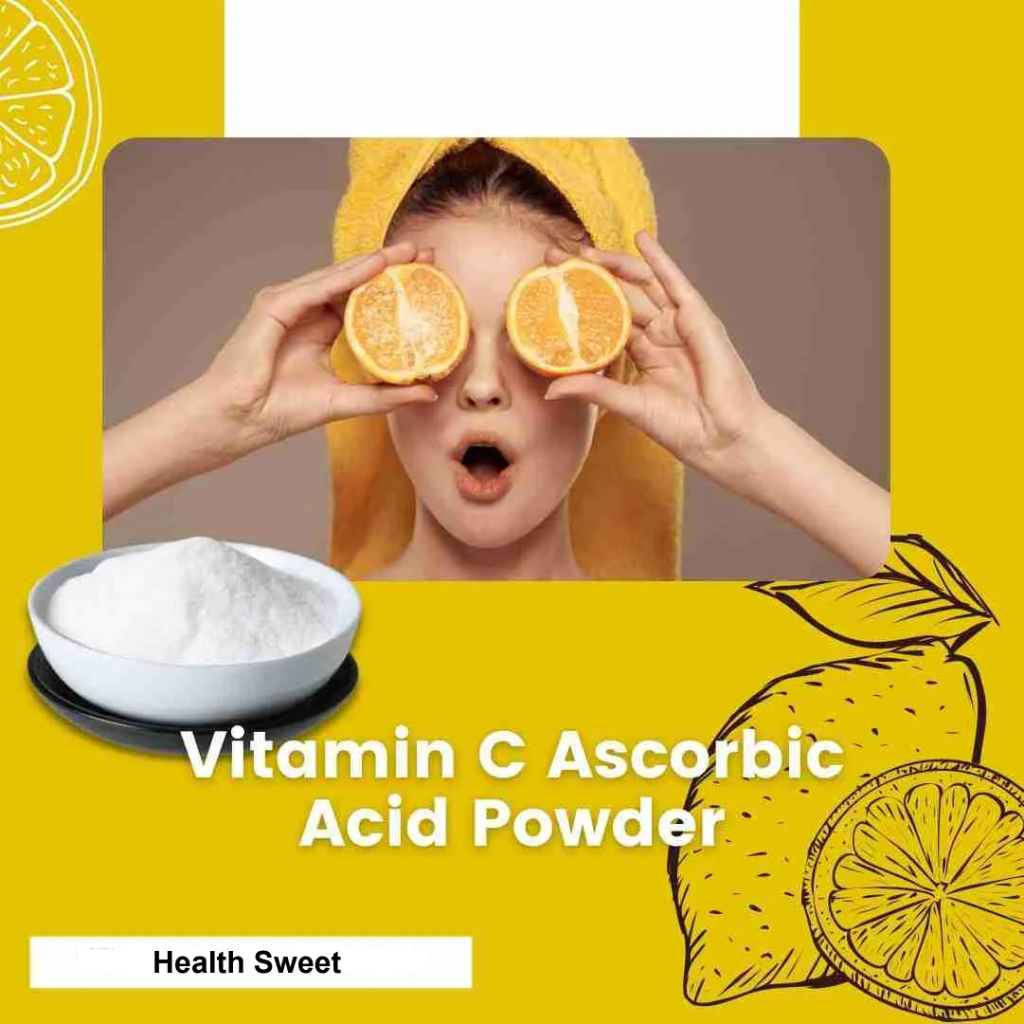
Vitamin C, also known as L-ascorbic acid, is a water-soluble vitamin that is naturally present in some foods, added to others, and available as a dietary supplement. Humans, unlike most animals, are unable to synthesize vitamin C endogenously, so it is an essential dietary component.
Ascorbic Acid is required for the biosynthesis of collagen, L-carnitine, and certain neurotransmitters; vitamin C is also involved in protein metabolism. Collagen is an essential component of connective tissue, which plays a vital role in wound healing. Vitamin C is also an important physiological antioxidant and has been shown to regenerate other antioxidants within the body, including alpha-tocopherol (vitamin E).
Ongoing research is examining whether Ascorbic Acid, by limiting the damaging effects of free radicals through its antioxidant activity, might help prevent or delay the development of certain cancers, cardiovascular disease, and other diseases in which oxidative stress plays a causal role. In addition to its biosynthetic and antioxidant functions, Ascorbic Acid plays an important role in immune function and improves the absorption of nonheme iron, the form of iron present in plant-based foods. Insufficient Ascorbic Acid intake causes scurvy, which is characterized by fatigue or lassitude, widespread connective tissue weakness, and capillary fragility.
Good sources of Vitamin C(Ascorbic Acid)
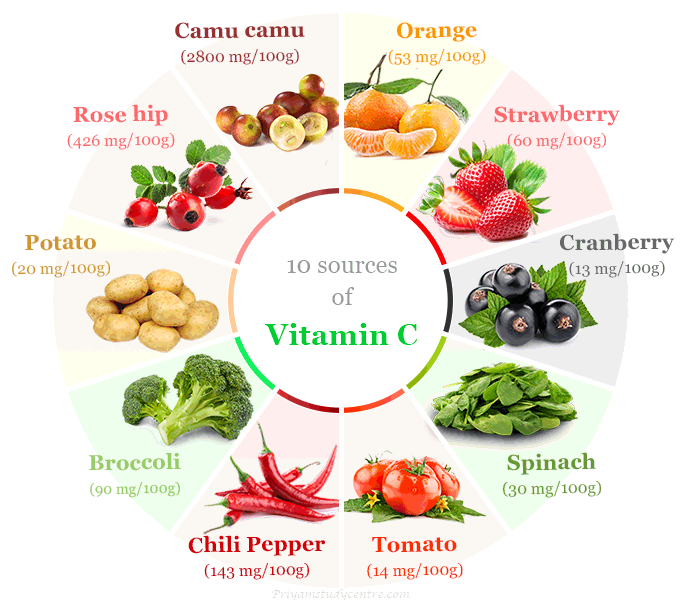
Vitamin C is found in a wide variety of fruit and vegetables.
Good sources include:
- citrus fruit, such as oranges and orange juice
- peppers
- strawberries
- blackcurrants
- broccoli
- brussels sprouts
- potatoes
How much Vitamin C(Ascorbic Acid) do I need?
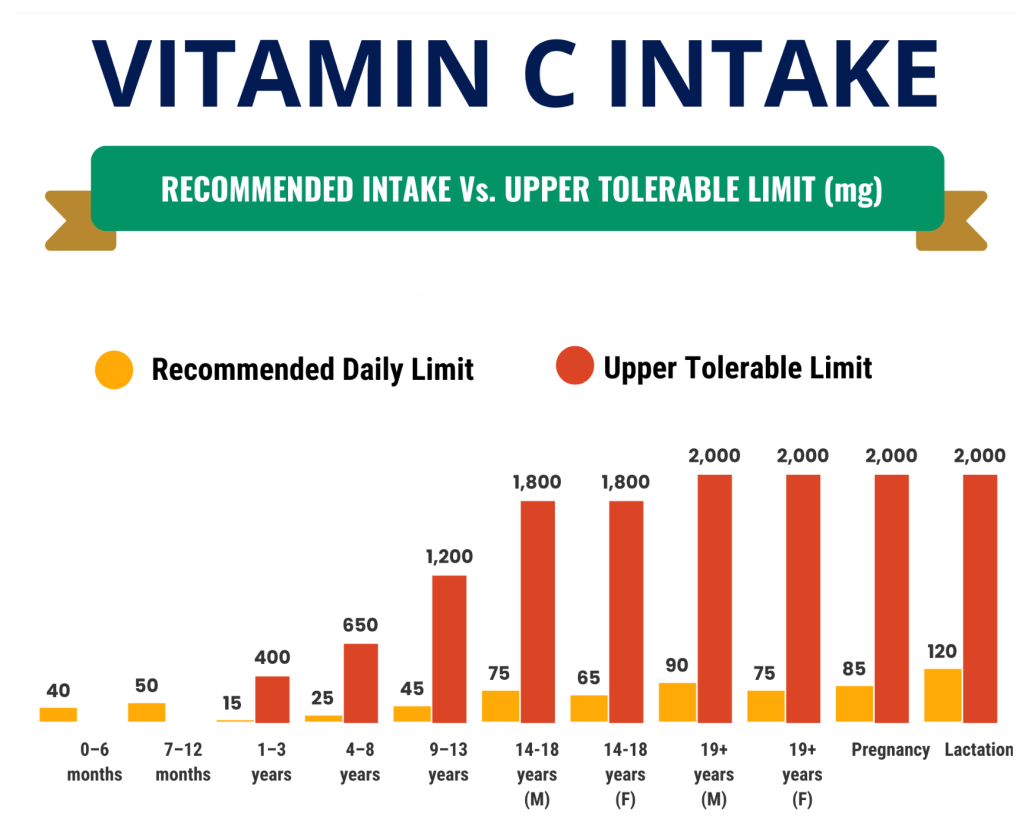
Adults aged 19 to 64 need 40mg of vitamin C a day.
You should be able to get all the Ascorbic Acid you need from your daily diet.
Ascorbic Acid cannot be stored in the body, so you need it in your diet every day.
Vitamin C supplements
It may be found in either natural or synthetic vitamin C or ascorbic acid. Tablets and capsules are probably the most popular forms but they may also come in crystalline powdered, effervescent, and liquid forms. It comes in doses ranging from 25 mg to 1,000 mg.
Buffered vitamin C is a highly absorbable form found together with the buffering minerals magnesium, potassium, and calcium. In this way, we use higher doses of this vitamin without any stomach upset.
The most commonly used supplement molecules are ascorbic acid, sodium, and calcium ascorbate. The best way to take this vitamin supplement is 2 – 3 times per day with meals. Some studies suggest that adults should take 250 – 500 mg twice a day for any beneficial results.
Always talk to your doctor before taking a higher dose of this vitamin on a daily basis and before giving it to your child.
Vitamin C for Skin
Ascorbic acid is a water-soluble vitamin and nutrient that plays an important role in keeping your skin healthy. It is an antioxidant that fights against harmful toxic materials that come in contact with your skin either from external sources or from inside the body. Ascorbic Acid may give the following main benefits for your skin:
- Reduce undereye circles
- Collagen production
- Treats hyperpigmentation
- Hydrates skin
- Reduces redness
Benefits or Usages of Vitamin C(Ascorbic Acid)
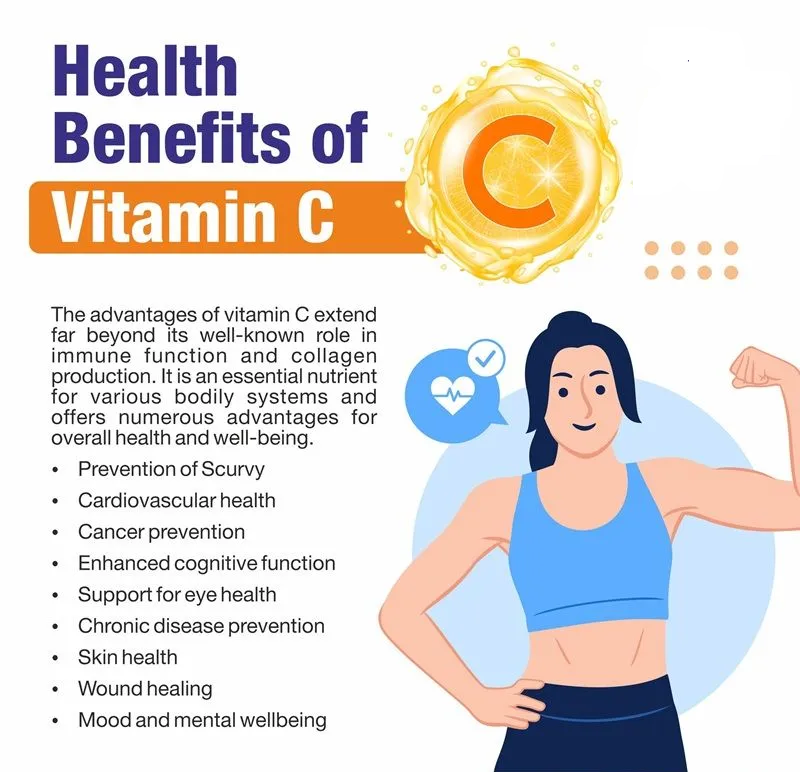
Ascorbic Acid is one of many antioxidants that help to protect our cells against the effects of free radicals. These free radicals are produced during the breakdown of food or when our bodies are exposed to tobacco smoke and radiation coming from the sun or other sources.
Free radicals might play a role in heart disease, cancer, and other medical conditions. The buildup of free radicals in our bodies over time is responsible for signs of aging. It also helps our body to absorb and store non-heme iron. This vitamin helps to make various hormones and chemical messengers that are used in our brains and nerves.
We need to get Ascorbic Acid from our diet because our body doesn’t produce and store it. It is found in many fruits and vegetables or we use oral supplements in the form of capsules and chewable tablets.
The use of Ascorbic Acid for specific medical conditions is given below,
1.Ascorbic Acid for Scurvy.
2.Heart Disease
4.Cancer
5.Common Cold
6.Iron Deficiency
7.Eye diseases
Vitamin C Deficiency
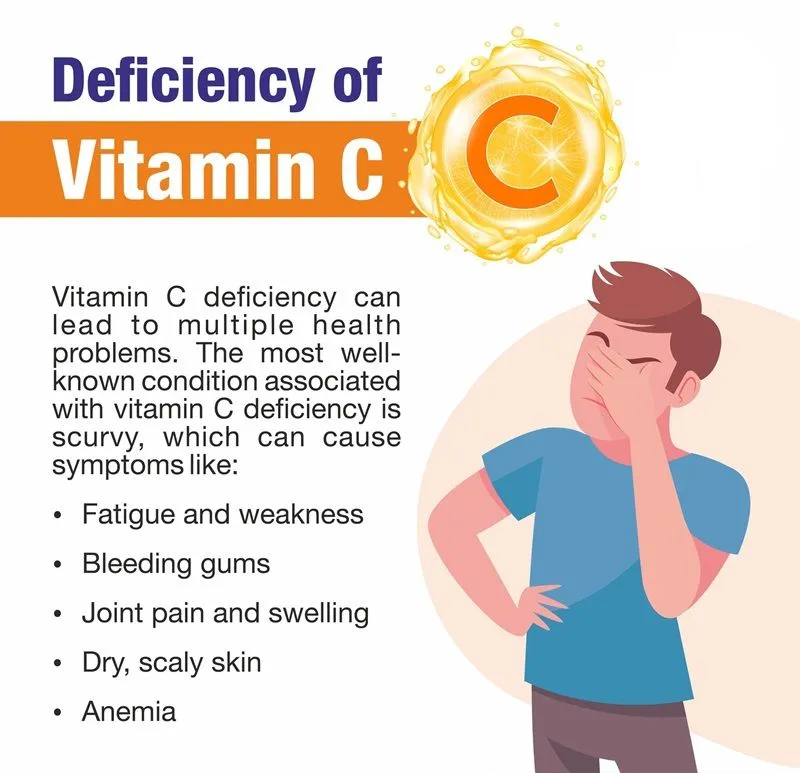
Vitamin C deficiency can lead to multiple health problems. The most well-known condition associated with Ascorbic Acid deficiency is scurvy, Symptoms of scurvy include:
- Fatigue and weakness
- Bleeding gums
- Joint pain and swelling
- Dry, scaly skin
- Anemia
People at risk for vitamin C deficiency include those with poor diets, certain medical conditions, or lifestyle factors that limit nutrient absorption, such as smoking or alcohol consumption.
In Conclusion
Ascorbic Acid is one of the most important nutrients that is involved in numerous bodily functions like immunity, collagen synthesis, protection from free radical damage, etc. Our body is unable to synthesize Ascorbic Acid and must rely solely on dietary intake. Unfortunately, more than 45% of Indians are deficient in Ascorbic Acid and are unable to fulfill the same with their regular diets. Proactively including Vitamin C rich foods in your daily diet or supplementing with Vitamin C dietary supplements is a wise decision to combat signs and symptoms of Vitamin C deficiency.
The Main brand of Vitamin C supplements in the market
